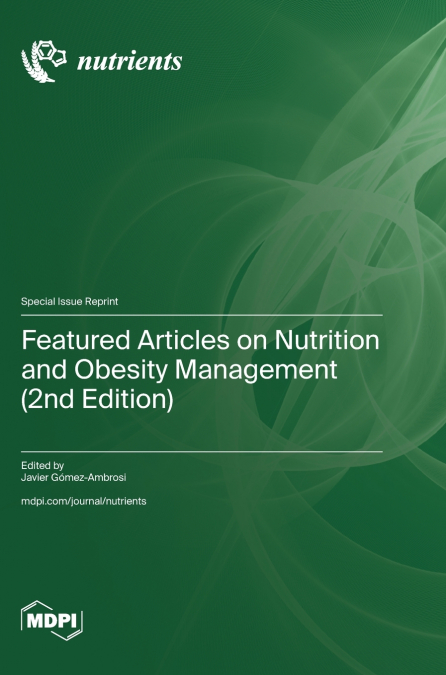
Javier Gómez-Ambrosi
Obesity has become one of the most prevalent metabolic disorders. Excess adiposity favors the development of cardiometabolic alterations such as type 2 diabetes (T2D), cardiovascular disease, dyslipidemia, fatty liver, and cancer. In recent years, our understanding of the pathophysiology of obesity has greatly improved, and novel approaches to its treatment have emerged. However, the obesity pandemic continues without signs of abatement. In this Special Issue, 'Featured Articles on Nutrition and Obesity Management (2nd Edition)', we welcomed reviews and original articles related to any aspect of obesity management, from the traditional dietary approach (with different types of diets) to bariatric surgery, including pharmacologic treatments, with particular emphasis on recent successful combinations of drugs. We considered manuscripts regarding lifestyle modifications in relation to physical activity and sleep hygiene. Innovative approaches such as the different modalities of intermittent fasting, including aspects relative to their effectiveness or the different physiological mechanisms involved, or the use of innovative technologies, such as mobile apps or wearable devices, were very welcomed. We aimed to provide readers with a clear overview of the pathophysiological relevance of weight loss and the improvements in cardiometabolic risk factors that occur with different therapeutic approaches, as well as the changes in body physiology and energy expenditure that drive weight regain.